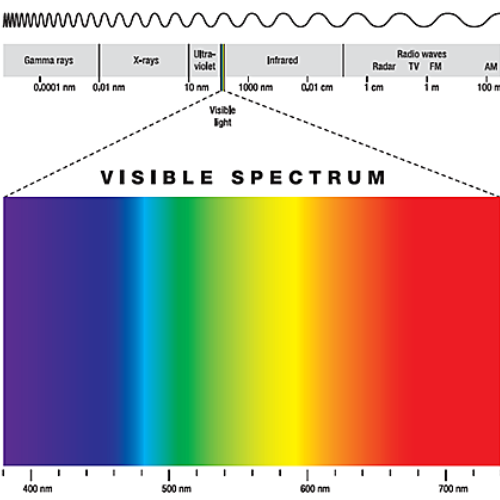
Do Screens Cause Dry Eyes?
In the age of digitization and the increasing use of electrical devices, blue light is repeatedly discussed.
We constantly encounter blue light in everyday life: working on the screen at the office, using the smartphone on the go or reading the e-book before going to bed. But natural blue light, contained in daylight, is also part of our biorhythm.
But is blue light really dangerous? And can screens cause dry eyes?
In this article, we explain when blue light should be avoided and if screens cause dry eyes.
What is the Blue Light of Screens?

Light in general consists of visible light and light that we cannot see with the naked eye.
For example, the sun emits blue light (UV light) every day, which gives the sky a blue appearance. This radiation is much higher than the blue light generated artificially by electronic devices such as smartphones, tablets and others.
Blue light also influences our sleep-wake cycle and thus determines when we feel tired or awake.
Because of the electromagnetic wavelength of blue light, it can have both positive and negative effects on the body. In particular, the 380 to 440 nanometer wavelength range is considered harmful to health.

Blue light: Health Risks
In general, long-term exposure to blue light should be avoided, whether at home or outdoors. Blue light has the property of damaging the retina and causing dry eyes when exposed to light for a long period of time. It can lead to various eye diseases.
However, the exposure to blue light from the sun outside is much higher and more dangerous than inside when we are sitting on a PC or tablet.
Blue light & Sleep Disorders
LED screens in particular, such as those found in TVs and other electronic entertainment devices, produce blue light.
Although there are still no clear studies proving that blue light keeps us awake, the research results of some studies are clear: blue light can demonstrably inhibit the production of the sleep hormone, melatonin.
The internal human clock is naturally linked to the fact that blue light represents daylight and therefore we stay awake.
During the day, the melatonin level remains relatively low and increases steadily later in the evening.
In the morning it drops again, which wakes us up. So when it is dark outside, it signals to the pineal gland, which produces hormones and is directly connected to our eyes, that it is time to sleep.
However, it has not yet been definitively clarified whether the amount of blue light present in tablets and smartphones is sufficient to inhibit or slow down the production of melatonin.
Do Screens Cause Dry Eyes
To get a good night's sleep and rest your eyes, you should:
- Refrain from staying in front of screens just before going to bed
- Take several breaks when working for a long time on the screen
- Protect your eyes by using Blue Light Blocking Glasses



